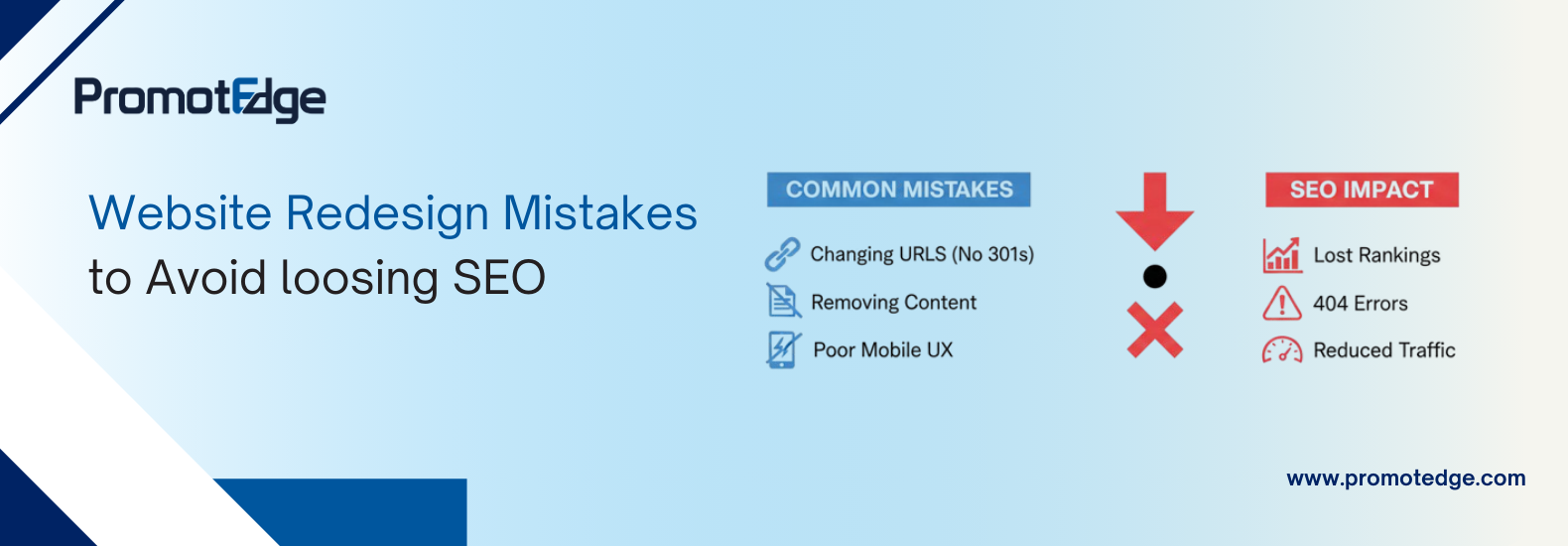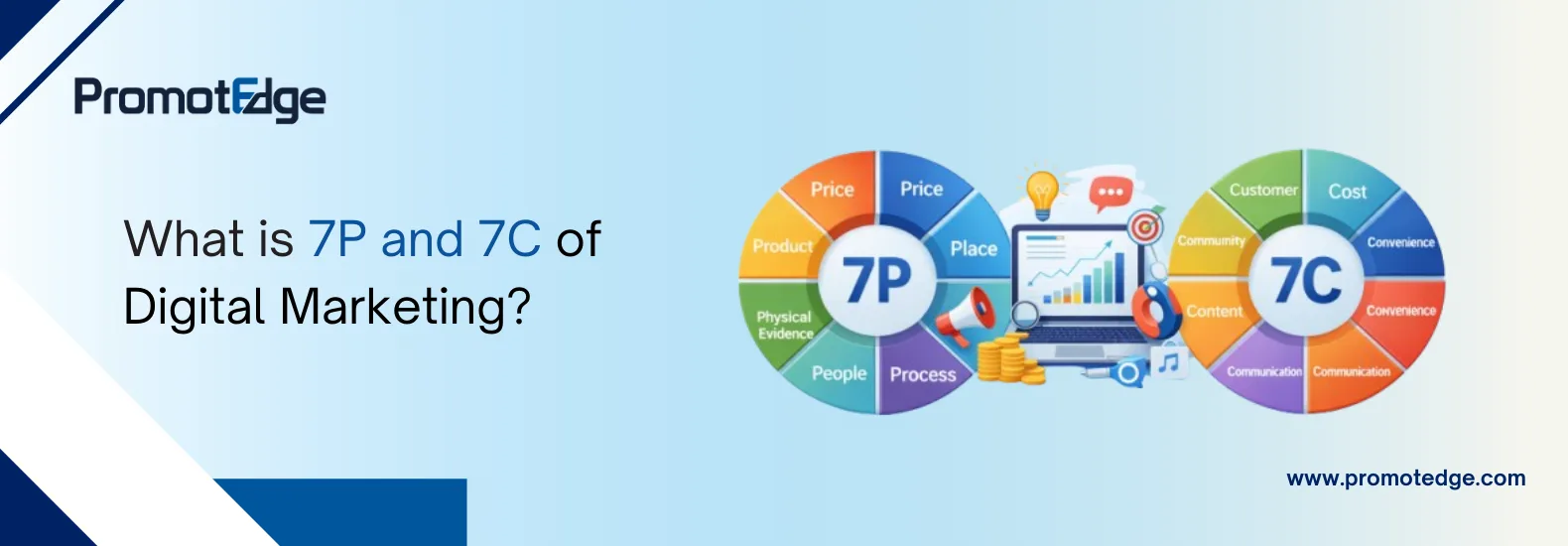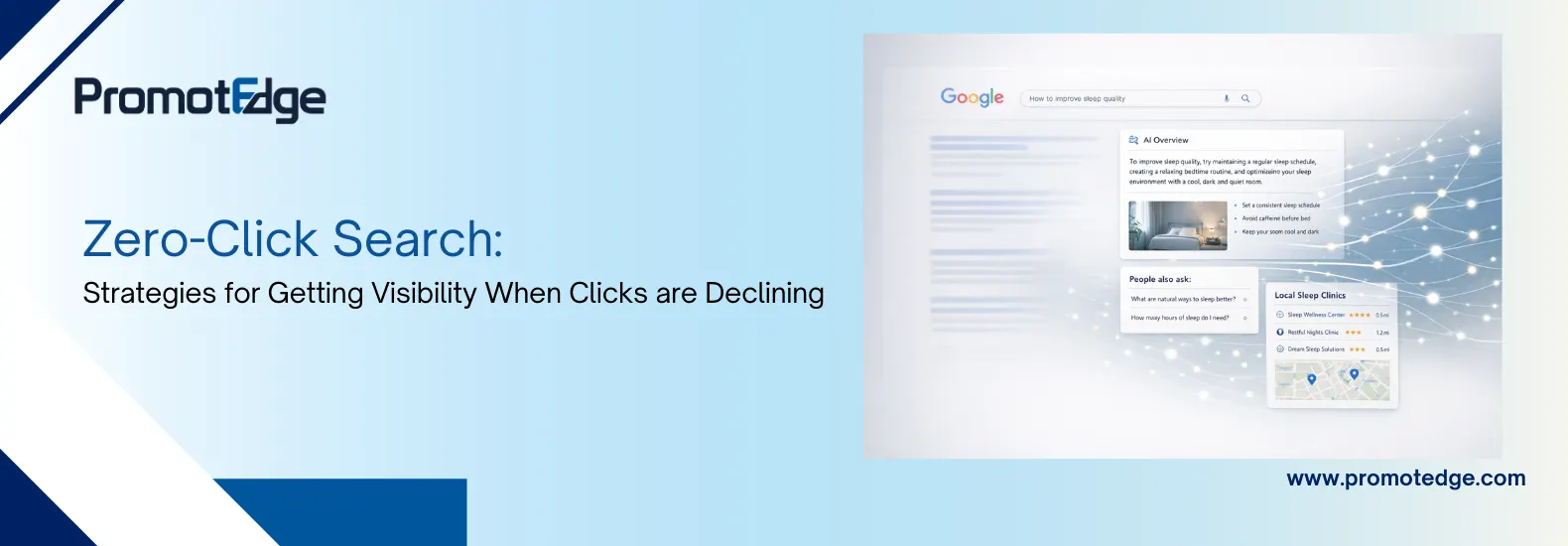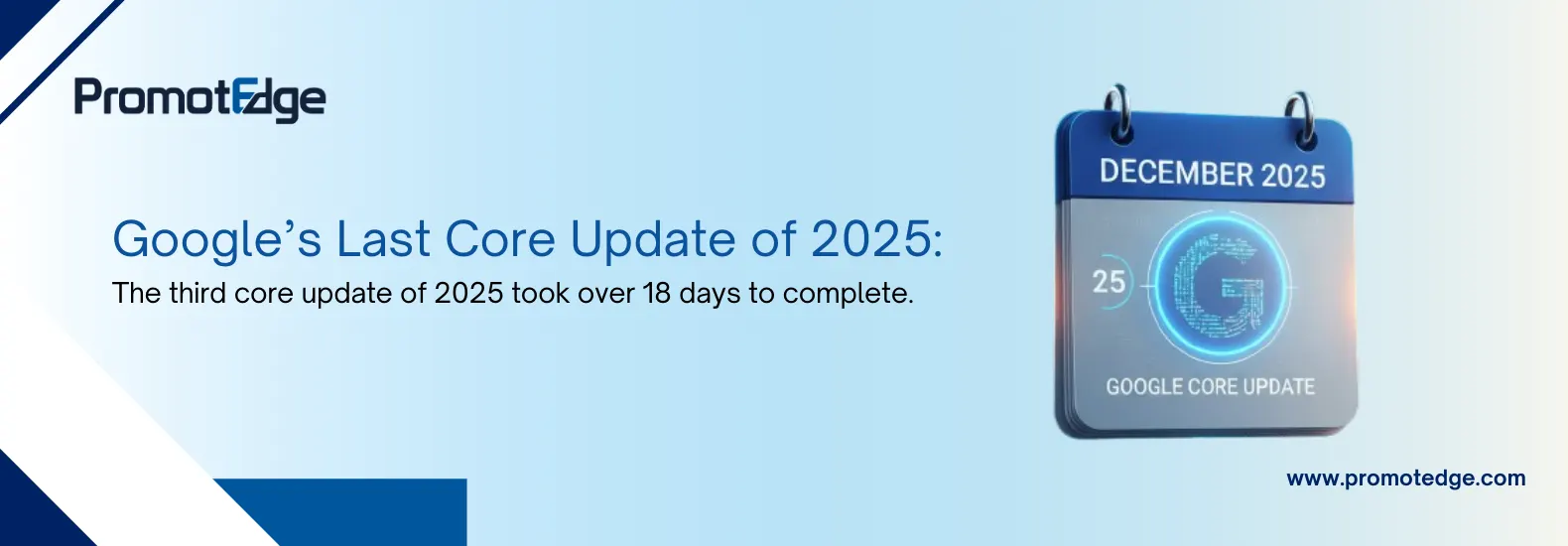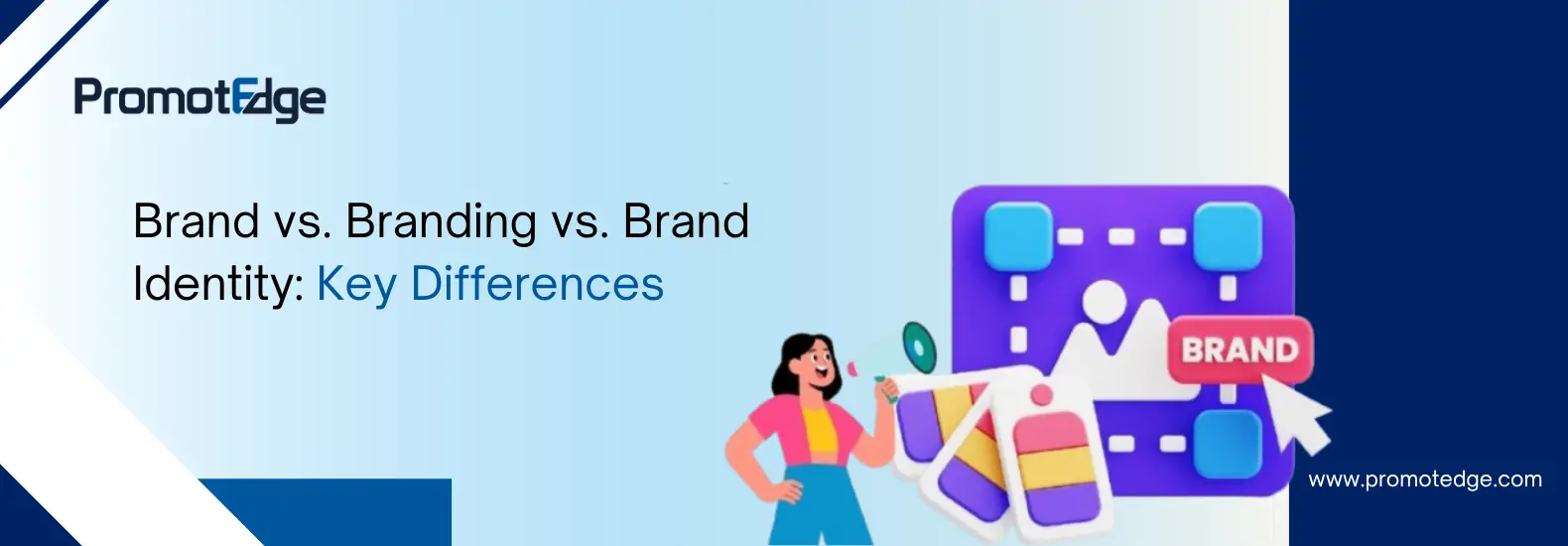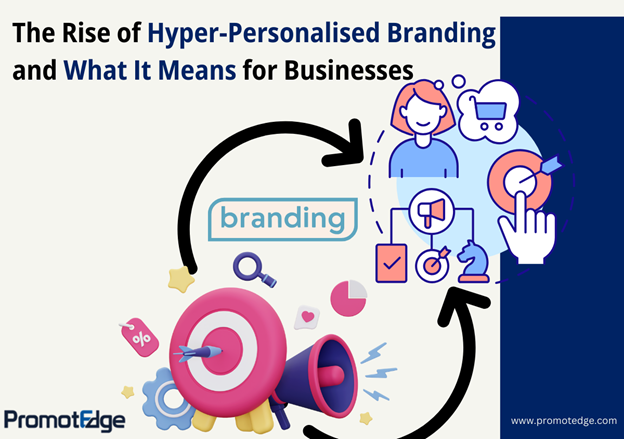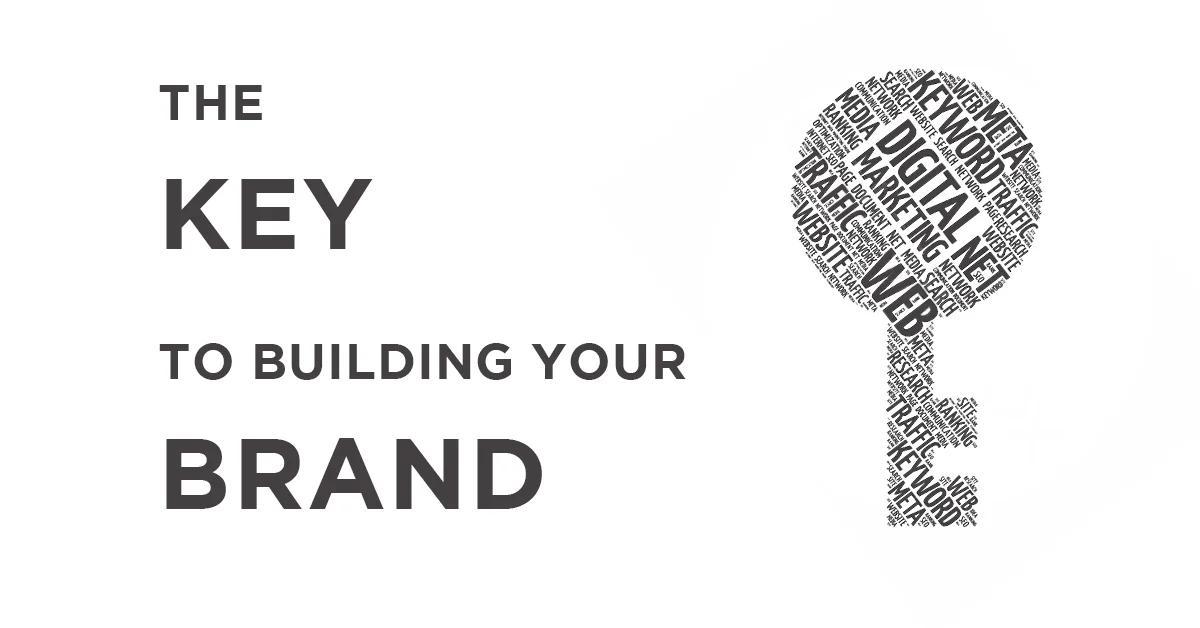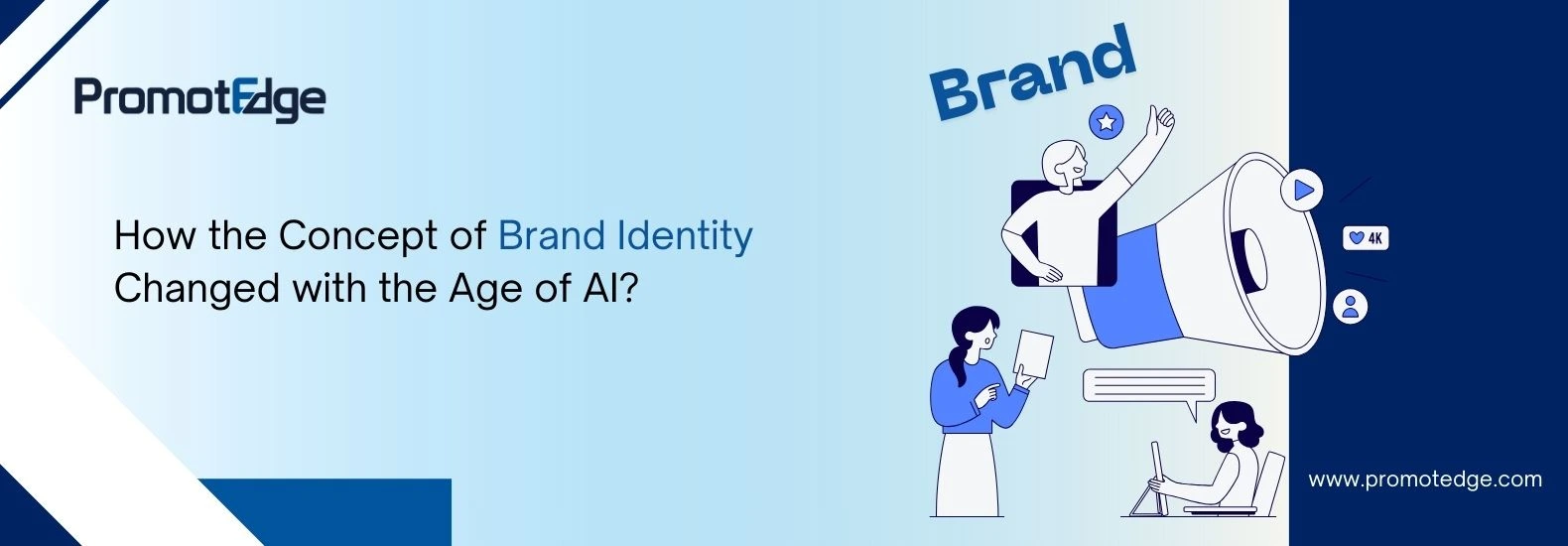
-
Author: PromotEdge
-
Updated Date: Feb-09-2026
-
Views: 2 Min Read
Once upon a time, building a brand was like designing a beautiful storefront, you picked your colours, crafted a catchy tagline, and hoped customers would remember you. Well, those days are officially over, because brand identity has now got its own main character energy.
In the age of AI in marketing, brand identity isn’t just about what people see, it’s about what they experience, interact with, and trust.
And here’s the twist: AI hasn’t just added new tools to the branding playbook; it has completely rewritten the rules and created an all-new image for itself. But did it have to lose anything in the process? Or has it created any loopholes that can hamper the essence and feel of branding?
As someone working at a branding and advertising agency in Kolkata, we have seen first-hand how AI is changing the way brands look, sound, and even think. There is good, the exciting, and even the concerning; so, how is the AI-brand identity relationship working in current times?
What is brand identity as a concept?
At its core, brand identity is the collection of elements that make your brand unique. It can be your logo, colours, tone of voice, values, or even how your customer service feels.
For instance, consider brand identity examples like Apple, Nike, or Airbnb; the one thing that is common is that they have a strong identity that also connects emotionally.
So, think about it like this: if your brand was a person, then its brand identity will be how it appears, its personality, and how it talks with the audience. And this is why brand identity design is so important, because it’s not just decoration, it’s that differentiation factor which makes your brand stand out.
How has AI started to influence brand identity?
Well, now that AI has entered the scenario, AI is no longer just a behind-the-scenes tool, but a co-creator of the brand experience. With AI-powered branding, companies can now analyse audience behaviour in real time, personalise messages for millions, and even predict what customers will want next.
But here’s the real game-changer: AI isn’t just for supporting brand identity; it is actively shaping it. From automated content creation to intelligent chatbots and adaptive design systems, AI is moving from the backstage to the front row. There is so much that can now be visualised and planned well ahead of time thanks to AI in branding.

Six ways AI is changing brand identity
AI-powered branding is changing how the future of brands will be, and the future of advertising agencies will depend on how quickly they will adapt to these changes. Here are some specific ways in which the AI-branding relationship is evolving in current times:
1. Brand identity is now living and learning
Those days of static style guides are now gone because AI tools can offer things like analysing customer behaviour, tweaking tone, visuals, and interacting without losing the brand’s core essence. So, think of your website like a person who can redesign and reinvent itself according to its audience without human intervention, but only AI.
2. It is moving branding from just visuals to a multi-sensory experience
Ask “what is brand identity” today, and the answer extends beyond logos. AI enables:
- Branded voice assistants
- Personalised chat responses
- Emotion-based customer interaction adjustment
As a result, your brand can now talk, listen, and respond like never before.
3. It is influencing personalisation at an unthinkable scale
Netflix doesn’t just show movies; it creates a tailored viewing universe for every user. That kind of hyper-personalisation is its brand identity, and this is how AI is repurposing data. As a branding and advertising agency in Kolkata, our goal is to create identities that adapt without fragmenting into inconsistency.
4. Creativity can now interact with data at multiple levels
AI has blurred the line between creative and analytical roles, and as a result, designers are able to generate brand identity examples in minutes. Similarly, things have improved for copywriters and strategists as well, as they can test multiple tones instantly and see real-time brand sentiment analytics, respectively, before making a move.
5. It is making brands algorithm-friendly
An AI-powered branding strategy has the power to optimise not only for people but also for search engines, recommendation systems, and social algorithms.
This means that:
- Keyword integration (brand identity design, AI in branding) is more smoothly possible
- Image tagging for machine recognition is more efficient
- Tailored content can be created to cater to platform-specific algorithms
6. Now there are instant feedback loops
In the past, brand audits happened once a year, but now, AI can deliver brand health scores daily. This has made tracking sentiment, engagement, and trust more efficient, and as a result, adjustments can happen before issues escalate.
AI hasn’t just tweaked the rules of branding here and there, but rewritten the entire story. And because of this, things like real-time personalisation and algorithm-friendly content are easier and more consistent.
Now the only thing to keep in mind is that the brands must embrace these shifts so that they can stand out.

Limitations of AI in creating brand identity
Well, just like any new invention, even AI has its drawbacks because of which things may not seem as wonderful in reality as it is on paper. While there are many opportunities with AI in branding, there are real limitations that cannot be ignored.
- Over-automation risk: AI can make your brand sound too robotic if it is overused or used without human intervention and context.
In 2022, KFC Germany sent out an AI-generated push notification telling customers to “Commemorate Kristallnacht… (with) soft cheese and crispy chicken” due to an algorithm error in its marketing automation system. There was instant backlash and even though they took it down soon, the public perception of KFC was damaged as Kristallnacht was the anniversary of a Nazi hate crime. - Cultural blind spots: AI often struggles with cultural nuances, and because of this, it can hurt sentiments and emotions.
For instance, many AI image generators found themselves producing stereotypical or gender insensitive imagery when prompted with terms like “CEO” or “nurse.” - Data dependency: AI decisions can be great sometimes, but it depends greatly on how it is trained and because of this, it can often produce poor or biased results that can harm a brand’s relevance.
Amazon had to scrap its AI recruitment tool after it was found to favour only male applicants. It was doing so because it had been trained on the basis of historical hiring data and this was dominated by men. - Loss of unique voice: When too many brands use the same AI tools without customisation, their voices start blending into one forgettable tone. And this is very harmful if your aim is to create a memorable brand identity.
AI should act as a co-creator, not the sole architect of your brand identity design. The most successful brands will still inject human oversight to maintain authenticity, cultural sensitivity, and emotional resonance for a brand.
The future of brand identity with AI
We believe that the future of advertising agencies is going to be about a partnership between AI and branding. While AI will be handling scale, speed, and insights, human intervention will be necessary for handling emotion, values, and storytelling.
AI in branding should not mean that human talents or skills will go out of the window. Because no matter how smart AI gets, brands will still need the human touch actually to build their presence and deliver their story.
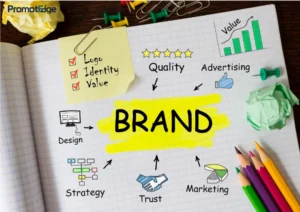
And more and more brands will need to design identities that are:
- Adaptive (changing with audience needs)
- Consistent (holding core values steady)
- Authentic (balancing automation with human touch)
Final take
AI in branding is not a passing fad, but a fundamental shift in how brands are presenting themselves and evolving with the changing audience. As a branding and advertising agency in Kolkata, at PromotEdge we blend the task at hand with AI’s power and human insight so that a brand’s personality will remain soul-driven but will also grow.
Because in this new era, your brand identity won’t just need a good design, but will have to be trained as well. And the brands that will thrive on this combination are the ones that will be able to blend AI and humans as smoothly as possible.
-
What is brand identity?
Ans.Brand identity is how a brand presents itself through visuals, tone, and customer experience. It’s what makes a brand unique and memorable. -
How is AI changing brand identity?
Ans.AI in branding makes identity adaptive and personalised. Brands now use AI to tailor content, voice, and design for different audiences in real time. -
Can you give brand identity examples influenced by AI?
Ans.Yes—Netflix, Spotify, and Amazon—each uses AI to personalise user experiences, making personalisation itself a core part of their brand identity. -
What are the limitations of AI in branding?
Ans.AI can make brands sound robotic, miss cultural nuances, and lose originality if overused, and thus, human oversight is needed to keep identity authentic. -
What is the future of advertising agencies with AI?
Ans.The future of advertising agencies is hybrid: AI handles speed and data, while humans bring creativity and emotional storytelling. -
Can small businesses use AI in branding?
Ans.Yes, affordable AI tools now help small businesses design logos, manage social media, and personalise customer interactions.
Blogs
Journey into Ideas Unveiling Tomorrow's Insights Today.

-
What is brand identity?
Ans.Brand identity is how a brand presents itself through visuals, tone, and customer experience. It’s what makes a brand unique and memorable. -
How is AI changing brand identity?
Ans.AI in branding makes identity adaptive and personalised. Brands now use AI to tailor content, voice, and design for different audiences in real time. -
Can you give brand identity examples influenced by AI?
Ans.Yes—Netflix, Spotify, and Amazon—each uses AI to personalise user experiences, making personalisation itself a core part of their brand identity. -
What are the limitations of AI in branding?
Ans.AI can make brands sound robotic, miss cultural nuances, and lose originality if overused, and thus, human oversight is needed to keep identity authentic. -
What is the future of advertising agencies with AI?
Ans.The future of advertising agencies is hybrid: AI handles speed and data, while humans bring creativity and emotional storytelling. -
Can small businesses use AI in branding?
Ans.Yes, affordable AI tools now help small businesses design logos, manage social media, and personalise customer interactions.




